Biden takes on Dems’ ‘Mission Impossible’: Revitalizing coal country
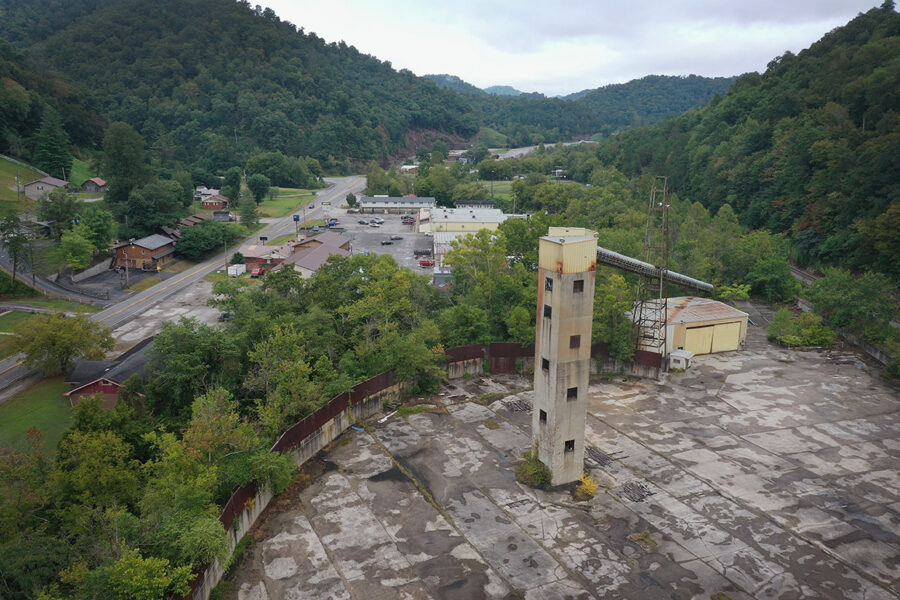
After years of watching their standing erode in energy-producing states, Democrats under President Joe Biden have accepted the challenge that’s vexed them for a decade: convincing fossil fuel workers that they will still be okay even if their current jobs evaporate as the nation embraces a climate change-friendly economy.
Democrats have a term for their vision — “Just Transition” — and hope it might succeed in the same places where previous attempts to focus on economic transition have failed. In 2016, Hillary Clinton tried to tout a transition economy in West Virginia, only to produce the most toxic sound bite of her ill-fated campaign, when she appeared to gloat at the notion of Democratic policies taking away coal miners’ jobs.
But even as Biden’s infrastructure bill touches on many policies that energy states say they will need to withstand job losses — including retooling defunct factories — they have yet to show much progress in winning the hearts and minds of people in places it would directly affect. Even some key allies acknowledge that Democrats haven’t yet landed on a coherent, persuasive message.
“They’ve got a long way to go to convince people that what could happen will actually be positive for them,” said Phil Smith, spokesperson for the United Mine Workers of America, a labor group for coal miners. “Because right now, they don’t believe that.”
Democrats say they’ve learned and adjusted. But the party’s message still rings hollow to fossil fuel-reliant towns. The Biden administration unwittingly proved skeptics’ point when announcing aggressive climate change executive actions in January, with special climate envoy John Kerry using the timeworn line that “the same people can do those jobs, but the choice of doing the solar power one now is a better choice.”
Kerry’s comments were criticized as tone deaf, reflective of Democrats’ reputation in towns that feel they’ll be on the losing end of this shift.
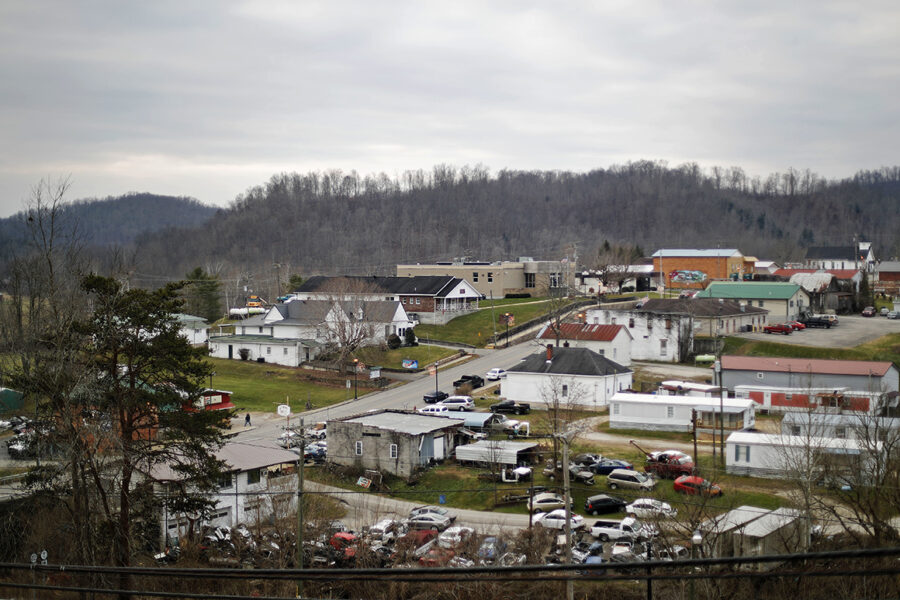
But the backlash seemed only to awaken Democrats to the need to soften the blow to towns suffering from the energy transition. On Feb. 4, Wyoming’s Republican Sen. John Barrasso proposed an amendment to a $1.9 trillion economic relief bill attacking Biden’s ban on oil and gas leasing on federal land for failing to offset lost revenue to schools in nearby communities. Barrasso’s proposal, which would replace lost revenues to help schools, was designed as a poison pill for Democrats who have played down or sidestepped negative repercussions of their envisioned transition off fossil fuels.
But Democrats, spurred by New Mexico’s Martin Heinrich, surprised their Republican colleagues by embracing it. Heinrich’s state is at the heart of the U.S. oil and gas boom, with towns along the Permian Basin reliant on the jobs and revenues hydrocarbons bring. The offices for Senate Majority Leader Chuck Schumer and Senate Budget Committee Chairman Bernie Sanders (I-Vt.) indicated they would back Heinrich.
Heinrich’s floor speech staked out the party’s refreshed positioning, declaring that while he and Barrasso “disagree on many things,” including “the speed of the energy transition,” they agree on supporting fossil fuel-dependent communities.
“We support their schools, and throughout this transition we should support the people who have kept the lights on and made this country the greatest energy country on the face of the Earth,” Heinrich said. “So I would support this amendment because it’s about supporting the schools in those communities.”
The amendment passed 98-2.
***
When former President Barack Obama resided in the White House, Democrats first began speaking of a “just transition” — originally a labor movement term that environmentalists repurposed to tout a green jobs boom as coal-mining collapsed.
But Obama-era Democrats weren’t trusted messengers, given that many of them had long backed environmental policies that workers in fossil fuel-reliant sectors took as an assault on their employment and a danger to their communities.
“The towns and counties and regions around them unravel in a social sense. There’s a diaspora. Everybody just leaves. That’s why the landscape is just littered with all these former industrial towns,” Lee Anderson, director of governmental affairs with the Utility Workers Union of America, told POLITICO. “That creates this social and frankly political chaos that has led us to this moment in time now.”
Cratering revenues for schools is an epic challenge in itself. But it’s just one of the many interlocking issues standing in the way of Democrats’ plans to combat climate change.
Union leaders told POLITICO that Democratic officials and the Biden administration still have trouble getting their minds around how expensive aid will be to salvage Appalachian towns whose mountains are pockmarked with tapped out coal mines, much less for preventing the same fate in oil-and-gas towns in North Dakota, Pennsylvania, Texas, Oklahoma, Utah, New Mexico, Colorado and elsewhere. UMWA and other unions suggested wage replacement for even just three-quarters of the workforce taking jobs in fields that pay less than the fossil fuel industry would cost $23 billion per year. And that’s not even counting indirect jobs.
Biden believes the best solution is to replace fossil-fuel jobs with equally high-paying jobs. He talks of bringing a clean-energy manufacturing industry to the U.S. to put people in different jobs, ones with fewer health drawbacks like the black lung disease that has cost so many miners years and lives. His pitch is focused on jobs just as much as saving the planet.
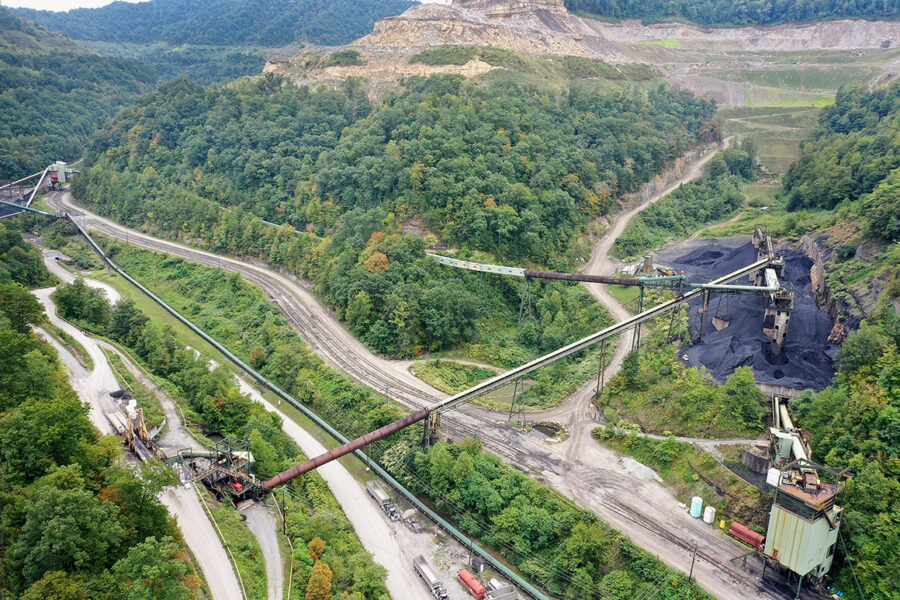
Biden teased some of these concepts in his $2.2 trillion infrastructure package, including tying labor standards to tax credits for renewable energy, directing money to union-run apprenticeships, targeting economic development grants to former mining towns and using overlooked programs to retool defunct factories in rural areas. Biden’s Democratic allies have floated bills that funnel a greater share of benefits to areas where coal mines and power plants have closed.
“Yes, we’re going to have to spend some money,” said Sen. Tammy Duckworth (D-Ill.), who has authored a massive investment bill dubbed a Marshall Plan for Coal Country. “But I actually think coal country is a great potential for corporations to invest in the area because of the talent that is there.”
But many of the jobs Democrats champion appear nebulous to voters on the ground. The median solar worker is paid $24.48 per hour compared with $30.33 per hour for natural gas employees, a study by the Energy Futures Initiative run by former Obama Administration Energy Secretary Ernest Moniz found.
Democratic Rep. Matt Cartwright represents a place close to Biden’s heart — Northeast Pennsylvania, including Biden’s hometown of Scranton. The region saw the decline of jobs in the coal sector by the 1970s replaced by electronics manufacturing. Now it must now grapple with new challenges brought on by firms outsourcing jobs to Mexico. He said people in his district would grade the Democrats favorably only when they saw the good-paying jobs materialize on the ground.
“It’s pretty simple: what people want are jobs,” Cartwright said. “Ultimately, do people care what they’re producing to work in lucrative, family-sustaining jobs? Of course not.”
Some Democrats bluntly offer the view that some degree of economic dislocation is inevitable — pointing to the demise of mill towns in the Northeast or the rise of industrialization thanks to electricity — but that they can do better this time to take care of individuals caught up in it.
“Watching public policy over the last 25 years or more, the economic revitalization piece — unfortunately it’s been an afterthought,” said House Select Committee on the Climate Crisis Chairwoman Kathy Castor (D-Fla.). “It hasn’t been coordinated. It hasn’t been a priority.”
***
Organized labor abhors the term “just transition,” but most Democrats and their green allies still use it. Too often, though, the message gets subsumed in a broader culture war that paints Washington-conceived solutions as at best fools’ gold, at worst a death sentence, hamstringing the party in politically moderate districts.
Democrats say clean energy is the future, and the jobs are there. But they often aren’t in the right places or with the right benefits. Obama and Hillary Clinton both had plans for a coal country transition, but they’re best remembered for Clinton’s campaign-trail gaffe that “We’re going to put a lot of coal miners and coal companies out of business,” which still resonates.
On top of that, there was another candidate — former President Donald Trump — telling workers that the coal industry would come back, that they didn’t have to change, to transition, to retrain or to worry. Democrats charge that Trump accelerated a trend of Republican politicians dishonestly attributing towns’ downfalls to a so-called “War on Coal” rather than economics. In fact, the Democrats contend, most coal plants are outdated and inefficient, and can’t compete with cheaper natural gas even without any additional environmental restrictions.
“They are lying,” Rep. Sean Casten (D-Ill.) said of the Trump-infused Republican rhetoric, and he blamed Democrats for not calling them out. “The conversation has salience because instead of saying, ‘You are lying to the American people,’ we refer to them as ‘the gentleman from Texas.’”
But some Democrats think the problem is deeper, and that glib talk of transitioning and retooling translates to workers as disrespect for their skills.
“It’s really maddening to me when people say to a boilermaker or a pipe-fitter or a laborer with a capital L who is an expert in pipeline work, ‘Oh, don’t worry, you can go install solar panels,’” said Rep. Andy Levin (D-Mich.), a former labor organizer and clean-energy consultant. “That is insulting, a) because it doesn’t comprehend the incredible skill of their work and b) because it doesn’t comprehend that they have really a whole culture around the work they do.”
The challenge of transitioning to a new economy while still respecting and including workers is already being felt in West Virginia, a state that has seen its coal economy decline precipitously over the last decade while policymakers struggle to create new economic opportunities. The state is now uniquely positioned to reap the benefits of federal investments through its two senators: perennial swing vote Joe Manchin (D-W. Va.), and Environment and Public Works ranking member Shelley Moore Capito (R-W. Va.).
Nearly a dozen West Virginians told POLITICO that residents of the state now by-and-large accept the notion that the coal sector isn’t likely to rebound — despite Trump’s promises — but many nonetheless remain skeptical of federal promises of new jobs and investment. Indeed, West Virginia — which was a Democratic stronghold as recently as 1996, when Bill Clinton beat Bob Dole by 15 points — gave Trump his second largest margin of victory in the 2020 election, a whopping 38 percentage points. There’s still resentment about the perception that environmental regulations from Obama’s administration hastened coal’s decline.
Promises of job retraining are “a bit of a trigger that sets people off” because such programs are difficult to pull off, require people to put any current employment on hold and often yield jobs that don’t pay as well as coal mining positions, which don’t require a college education, said Brandon Dennison, founder of Coalfield Development, which aims to foster new businesses in Appalachia.
Capito said that in West Virginia there is a “definite recognition of the reality that coal will never come back as big and broad as it has been in the past” but that she has an “impending doom feeling” given some of the initial statements from Biden administration officials, many of whom held similar roles in the Obama administration.
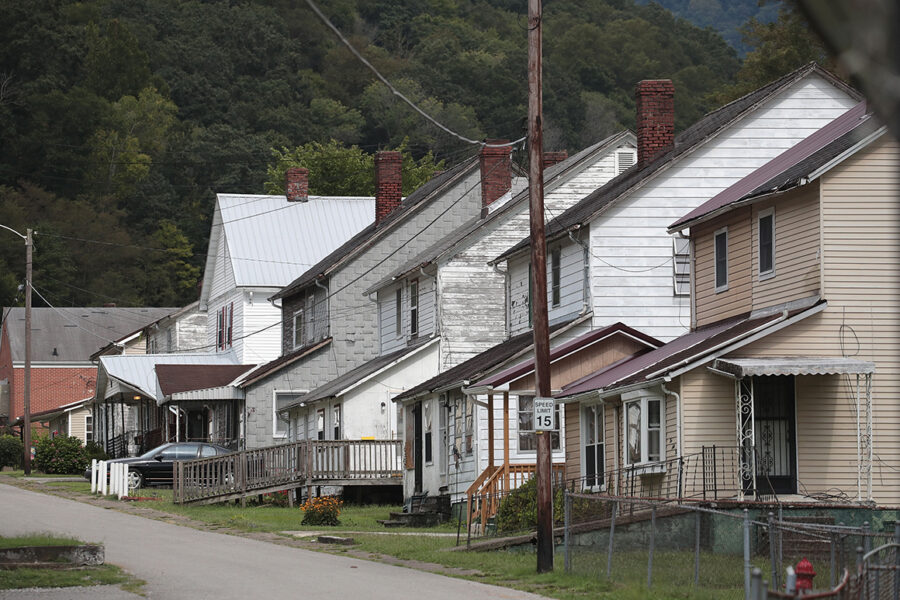
“We understand what’s going on and, yes, we want to be a part of the solution,” she said. “Secretary Kerry trying to equate the job of an electrician in a coal mine who makes $110,000 to a solar tech, who might make $35,000 to $40,000, is not a good analogy for our state. Honestly, I think most people who look at that and look at him, in particular, making that statement see a certain arrogance about it.”
There’s broad consensus on the need to diversify the state’s economy and further develop sectors like tourism and recreation, mine reclamation, agriculture, renewable energy and higher education in hopes of reversing a steady population decline and attracting young people back to the state. Multiple people said major federal investments in critical areas like broadband could help make the state turn the corner in attracting new residents.
“It’s going to take large scale federal investment. We need a New Deal-type reinvestment strategy to turn this thing around here,” said Angie Rosser, executive director of the West Virginia Rivers Coalition, a state affiliate of the National Wildlife Federation.
Manchin will play a key role in whatever support for the state emerges. He has likened coal miners to “returning Vietnam vets” who have been disrespected by the country that relied on their work for generations to power its growth and said they need an opportunity to do something different.
“For them to be chastised the way they have been and attacked unmercifully and trying to attack their way of life [is wrong]. There’s a transition. If there’s a transition, fine, we understand that,” he said in a previously unreported 2019 interview with POLITICO. “They expect to be treated fairly and [given] an opportunity.”
***
Fairness is where workers, especially those involved in organized labor, find fault with Democrats’ green economic makeover.
Some clean-energy companies lack the most basic of labor protections. Many categorize their workforce as contractors, denying them full benefits. Very few wind and solar companies have unions, and many opposed unionization efforts. Tesla CEO Elon Musk has taken a particularly strong stance against unions, with the National Labor Relations Board demanding he remove a tweet that allegedly threatened organizers. (Tesla appealed the ruling in March.) And making electric vehicles requires fewer parts than internal combustion engine-powered cars, translating to fewer workers.
“There’s members saying, ‘If we’re moving into this, if we’re transitioning into all these new jobs, where’s mine?’ So outline specifically how the transition will be laid out,” said Liz Shuler, secretary-treasurer with the AFL-CIO. “Is it going to be a bridge for those who are close to retirement? Is it going to be wage replacement? Is it going to be help training up folks into the next opportunity?”
And while solar installer and wind turbine technician jobs may be growing, there’s still fewer of them than in competing energy fields and they’re not necessarily in the same locations as displaced fossil-fuel workers.
“These are the jobs you’re going to have, but nobody can really tell us what they are,” said Jeff Nobers, executive director of the Builders Guild of Western Pennsylvania. “And then some other obvious questions. Will people have to move? Do I have to relocate my family?”
***
Democrats contend it’s more than just solar and wind, saying they can restore hollowed-out industrial towns with manufacturing industries of the future. Manchin and Sen. Debbie Stabenow (D-Mich.) floated an $8 billion advanced manufacturing tax credit that would send half that total to census tracts where coal mines and power plants have shuttered, in an attempt to inject new life into vulnerable towns.
But that doesn’t mean the local workforce is ready to take on those jobs, Nobers said. The skills learned in one area are less transferable than policymakers imagine, he said. Smith, the UMWA spokesman, said that many clean-energy jobs are “at the margins,” and tend to disappear once the solar panels and wind turbines are up and running. And the billions Biden called for to pay people to reclaim abandoned wells and mines would be fleeting, too, he said.
“There’s never been such a thing as a just transition,” Smith said. “Now, at least people are talking about the need for it, which is which is a step in the right direction. But there’s been no example in this country of how to do that.”
The Biden administration is looking to the Energy Department to lead its jobs effort. The department led an interagency effort to identify proposals to revitalize coal communities, which produced a not-yet-publicized report that includes a list of communities ripe for reinvigoration. The department also has stood up a new energy jobs office led by Jennifer Kropke, a longtime International Brotherhood of Electrical Workers member, that is communicating regularly with organized labor.
Still, labor leaders insist that much of the administration’s and Democrats’ plans amount to tinkering around the edges of the real problem. They pointed to efforts to impose prevailing wage requirements to ensure fair pay on federal clean-energy projects, to boost training programs, to diversify local economies. But truly transforming the landscape and making clean energy work for labor, union leaders said, would require changing federal labor laws to make it easier to organize — an effort that would be highly unlikely to prevail in the 50-50 Senate without Republican support. Organizers contend that without passing legislation like the Protecting the Right to Organize Act, or PRO Act, the U.S. clean energy manufacturing renaissance Biden envisions would be free to engage in a race to the bottom for wages and benefits.
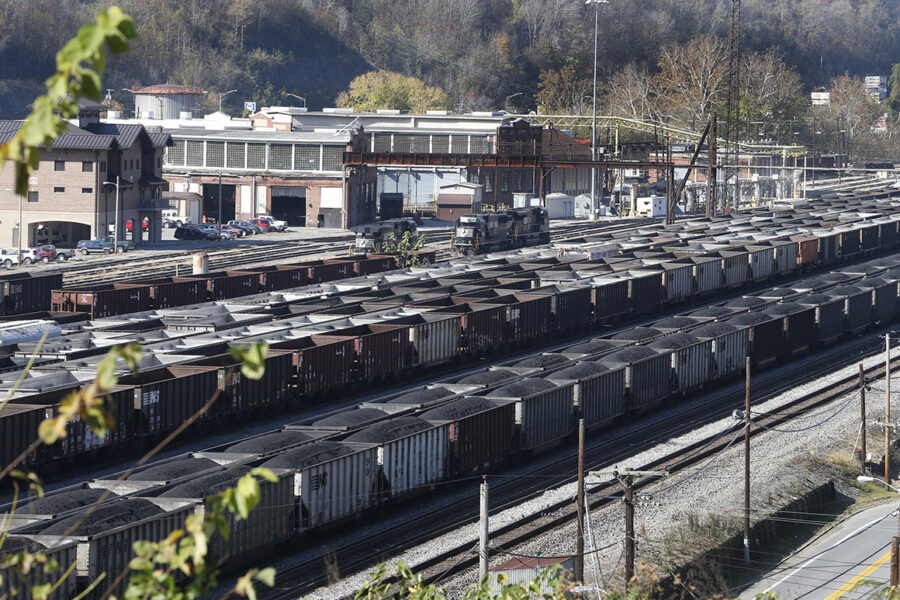
“The thing everybody understands now is unless everybody has a chance to organize, these aren’t the same jobs,” said an organized labor official who asked for anonymity to discuss conversations with the administration.
But clean-energy firms aren’t the same as the fossil-fuel factories of the past: They don’t require the same labor inputs, and the best of them — those that manufacture clean-energy equipment — face intense overseas pressure, according to lawmakers and labor leaders. Putting political energy behind passing broader labor reforms might win Democrats more friends in coal country. But it’s not clear the party is ready to take on that battle in a meaningful way.
Instead, Democrats are exploring creative ways to prod employers to boost wages through tax credits and federal spending programs. But those maneuvers don’t fundamentally enable workers to negotiate for better working conditions, pay and benefits, said Jason Walsh, executive director of the Blue-Green Alliance, a coalition of labor and environmental groups.
“Then we’re not going to really be able to change much,” Walsh said, adding, “Don’t make promises. President Biden has to be straight with folks.”
Walsh would know. He led Obama’s Power-Plus effort to ease the transition of coal communities, which focused mostly on retraining and economic development grants. The funding was a pittance compared to what Biden has already laid out, but it failed to win the hearts and minds of entire regions and sectors that are already skeptical of politicians — especially ones with a “D” next to their name. Walsh recalled traveling to coal communities where he never saw an Obama bumper sticker to have earnest conversations about their futures. There was often agreement on the need for more diverse economies, but little else.
In the meantime, piercing the information and trust barriers that divide Red and Blue America has grown more daunting. Democrats will have to figure out how to sell their idea of the future with those challenges in mind — if only they could agree on what their plan is in the first place.
“The only thing I’m comfortable saying is it’s a conversation we need to have,” said Casten, the Illinois Democrat. “Because I don’t know how it gets resolved.”
Go To Source
Author: POLITICO

